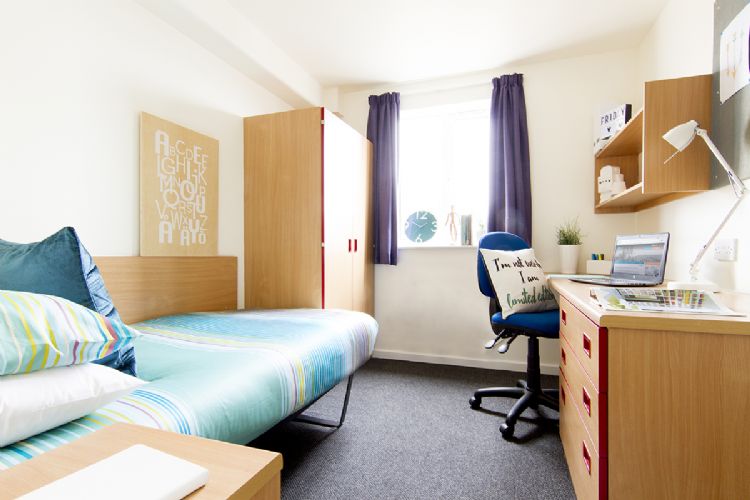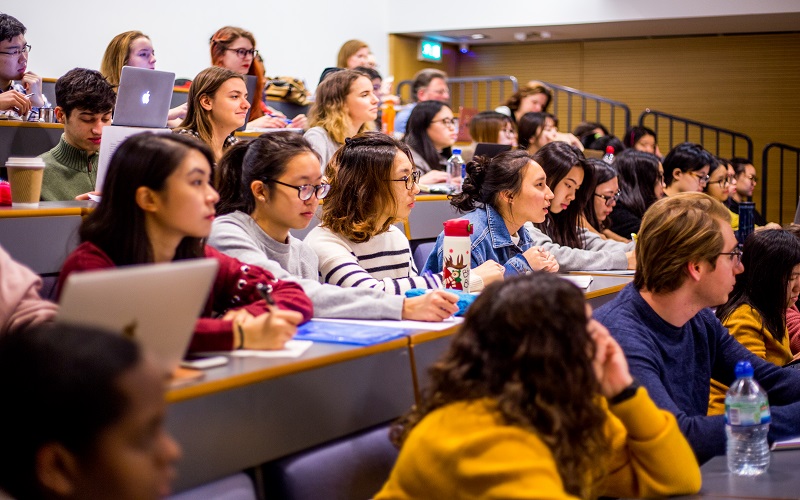
Studying in the UK: Accommodation Options

Curio Counselor Suzanna answers student questions focusing on British education, British G5 institutions, entry requirements, study abroad planning, background improvement, writing, application support, scholarships, student visas, accommodation, expenses… Get ready to learn insights into UK admissions.
▌Column Counselor——
Suzanna Brown
Proficient in international education and Chinese culture:
- Foreign Language Research Contribution Award, University of Michigan China Research Center
- University of Michigan Graduate Scholarship Winner
- Admitted to Tsinghua University Exchange Program IUP Bachelor of Arts (Honours), Calvin College, No. 1 in the Midwest
- Former English teacher at Northeastern University, Qinhuangdao, Hebei American Grand Rapids High School International Student Program
- Tutor Holding a global pass for studying abroad
With years of cultivation in the field of international education, the latest British education policies, UK undergraduate application experience, and British Council Education Consultant Certification. Suzanna is committed to help students design the best study abroad plan for the UK.
▌This Weeks Topic
What are the accommodation options for students studying in the UK?
Living in a foreign country, it provides the best experience once you find a cozy place to live. There is nothing worse than living in a freezing apartment in an unsafe neighbourhood during winter…
In this episode, Suzanna will share the types of accommodations you can choose when studying in England.
▌Core Content

▌Q&A
#1
Q:Do British universities provide dormitories?
Suzanna:British universities and colleges usually will provide housing for freshmen. Students can apply for housing at different locations or room types. For students looking for a safe community, these dorms are more suitable for students who visit the UK for the first time.
#2
Q:When choosing dorms, do their geographic locations matter?
Suzanna:Students’ dorms are usually located near the lecture halls, classrooms, libraries, laboratories, and common areas. Even if you are living in larger cities, the dorms shouldn’t be too far away from the campus, accompanied by convenient public transportation options.
#3
Q:How are the living conditions in dorms?
Suzanna:Commonly, university dorms are positioned within the campus or in nearby apartment buildings. Every student owns a room with either an independent or shared bathroom.
Depending on the number of people who chose to live on campus, the types of rooms available are single rooms, double rooms, and suites.
Single room and double room both have independent bathrooms, while suites need to share one with other students. But in all three types, each student owns a room to his- or herself. Rooms that are standardly equipped have a single bed, a desk, a lamp, bookrack, internet, and others like cable TV socket. You are expected to bring your own bedding, toiletries, and slippers.
Dorms are well-secured, with staff responsible for managing and cleaning the public areas.
#4
Q:What does “Self-catering” dorm mean??
Suzanna:According to the meal plans, university dorms are classified into Full-board and Self-catering. Most full-board dorms provide breakfast and dinner, some also include lunch, on school days.
Due to the cost and different eating habits, most Chinese students don’t choose Full-board dorms.
Self-catering dorms often provide electric stove, microwave, oven, fridge, tea sets, table, and chairs, etc. Bring your own pots, pans, spoons, and chopsticks if you need them.

#5
Q:If I am considering renting an apartment off-campus, what are the options?
Suzanna:Off-campus rental of privately owned housing includes houses, shared apartments, studio apartments, etc.
Flats and houses
After staying in England for a while, students might be eager to rent flats and houses along with their friends. This type of apartment has two or more rooms, providing private spaces for everyone while sharing bathrooms and living facilities. They pay the rent and electricity bills together, which may be cheaper than other options.
Bedsits
Bedsits are short for “a room used both as a bedroom and living room”. A single-room apartment inside a house. There will be a single bed, a sink, and perhaps a stove, some racks, or a desk. Bedsits have different designs: some have larger spaces, where you can separate it into sections using a curtain, while some may be very crowded. These apartments may not be the best environment for studying.
Homestay
For those who want to adapt to British culture sooner, choosing homestay can be a great option.
Students who study at a language school or pre-university courses at the International Guidance College choose to live with a host family to strengthen their English skills.
Normally, host families will provide meals according to the student’s preference, such as three meals per day or only providing breakfast and dinner.
Lodgings
Lodgings mean renting a room from a British family or renting a house from a landlord.
Lodging is similar to homestay, but your relationship with the owner might differ. For lodgings, you are just a renter to the landlord, barely meeting the family and rarely interacting with them.
The living conditions vary between houses, but generally more dangerous compared to college dorms. The security is not guaranteed, and the fees may be complicated, especially when the landlord is not as welcoming as expected. Also, if you get into a fight with your landlord, the school cannot interfere and provide you with much help. Remember to visit the place before renting it!
#6
Q:What credentials do I need to rent a place off-campus?
Suzanna:According to the 2014 legislation, landlords must check a renter’s status in the UK before signing a tenancy agreement. The legislation was phased in across the UK and then applied to the whole of the UK from February 2016 onwards. Although landlords in Wales, Scotland and Northern Ireland are not mandatory to do so.
In most cases, international students will be asked for a BRP bio-information card, passport, and valid student visa.
#7
Q:In contrast, different options have their strengths. The dormitory is safer and more convenient, while it is cheaper and freer to rent a place off-campus. I don’t know how to decide. What are your suggestions?
Suzanna答:Of course, choosing to live on campus is the easiest method to solve your concern.
It is closer to the school’s infrastructures, such as the library. In dorms, you will meet people from different countries and cultures, which is a way to broaden your horizons. I suggest that you can live on campus to become familiar with the foreign environment before finding the most suitable accommodation in the future.
#8
Q:Thank you for your answers. What should I do when I encounter difficulties after arriving at the university?
Suzanna:
You can choose to spend some time with friends, talk to the teachers at the Office for International Students.
https://www.ukcisa.org.uk/Information–Advice/Studying–living-in-the-UK/Looking-for-housing
You can also find suggestions when looking for accommodations on the UKCISA website: https://www.ukcisa.org.uk/Information–Advice/Studying–living-in-the-UK/Looking-for-housing
There’s a range of accommodation options available to international students.
The choice of student accommodation could make or break your student experience.
Thus it is important to make sure your accommodation is suitable for you.
Accommodation provided by the institution is recommended
for students studying in the UK for the first time
as it is a great opportunity to get to know other students and the campus.

Follow us on WeChat









